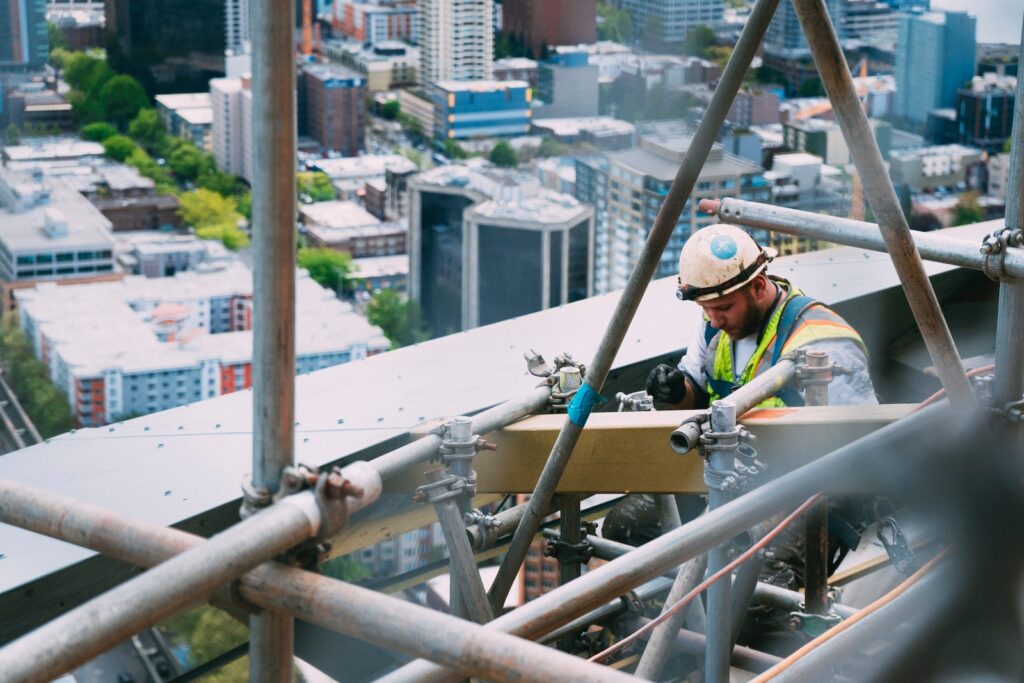Construction Loans for Beginners: A Step-by-Step Guide for Real Estate Investors
Are you a real estate investor looking to break into the world of construction? While investing in existing properties is a great way to generate passive income, building your own properties can provide even greater financial returns. However, as a beginner, you may be overwhelmed by the process of obtaining a construction loan. Don’t worry, we’ve got you covered.
In this step-by-step guide, we’ll take you through the process of obtaining a construction loan from start to finish, so you can begin building your dream property with confidence. Whether you’re a borrower or a lender, this guide is perfect for anyone looking to get started with construction loans. So, let’s get started!
Understanding Construction Loans
Before we dive into the steps for obtaining a construction loan, let’s first define what they are. Construction loans are short-term loans that are used to finance the building of a new property. Unlike traditional mortgages, construction loans are paid out in installments as the project progresses, rather than in a lump sum.
Construction loans also typically have higher interest rates and more stringent requirements than traditional mortgages, due to the increased risk associated with financing a construction project.
The Benefits of Construction Loans
While construction loans may have higher interest rates and stricter requirements, they can also offer several benefits for real estate investors. For example:
- Flexible payment schedules based on project milestones
- Lower initial payments since the loan is paid out in installments
- Ability to finance the construction of a property that may not yet exist
The Steps to Obtaining a Construction Loan
Now that we’ve covered the basics, let’s dive into the steps for obtaining a construction loan:
- Determine your financing needs: Before you start looking for lenders, you need to determine how much money you will need to finance your construction project. This will include the cost of land, materials, and labor.
- Research potential lenders: Once you have an idea of how much money you need, start researching potential lenders. Look for lenders who specialize in construction loans and have experience working with real estate investors.
- Get pre-approved: Once you have found a potential lender, you will need to get pre-approved for a loan. This will involve providing the lender with financial and personal information to determine your eligibility for a loan.
- Submit your construction plans: Once you have been pre-approved, you will need to submit your construction plans to the lender. This will include blueprints, specifications, and a detailed budget.
- Obtain a construction contract: Before the loan can be approved, you will need to obtain a construction contract with a licensed contractor. This contract should outline the scope of the project, the timeline for completion, and the cost of the project.
- Close on the loan: Once all of the above steps have been completed, you will be able to close on the construction loan. This will involve signing a loan agreement and other documents, and receiving the first installment of funds.
- Manage your loan: Once your loan has been approved and you have received your funds, it’s important to manage the loan carefully. This may involve periodic inspections of the construction site to ensure that work is progressing according to plan.
Precautions to Take
While construction loans can be a valuable tool for real estate investors, they also come with risks. Here are a few precautions to take when considering a construction loan:
- Work with an experienced team: When obtaining a construction loan, it’s important to work with an experienced team of professionals, including a licensed contractor, architect, and attorney.
- Have a solid business plan: Before you apply for a construction loan, make sure you have a solid business plan in place. This should include a detailed budget, timeline, and market analysis.
- Understand the risks: Construction loans come with risks, such as cost overruns, delays, and unforeseen issues. Make sure you understand these risks and have a contingency plan in place.
- Keep accurate records: Throughout the construction process, it’s important to keep accurate records of all expenses and progress. This will help you manage the loan and ensure that the project stays on track.

Best Practices for Construction Loans
Finally, here are a few best practices to follow when obtaining a construction loan:
- Shop around for the best rates and terms
- Be prepared to provide detailed financial and personal information
- Start the loan process early to allow for potential delays
- Communicate regularly with your lender and construction team
- Stay organized and keep detailed records throughout the process
Examples of Construction Loans
Here are a few examples of how construction loans can be used for maximum effect:
- Single-family home: A real estate investor wants to build a single-family home on a plot of land they recently purchased. They obtain a construction loan to finance the building of the home and pay it back over a 12-month period based on project milestones.
- Apartment complex: A real estate developer wants to build an apartment complex on a piece of land they own. They obtain a construction loan to finance the building of the complex and pay it back over a 24-month period based on project milestones.
- Commercial property: A real estate investor wants to build a commercial property, such as a retail center, on a plot of land they own. They obtain a construction loan to finance the building of the property and pay it back over a 36-month period based on project milestones.
No matter what type of property you want to build, a construction loan can be a valuable tool to help you finance the project and turn your real estate investment dreams into reality.
Final Words
Construction loans can be a valuable tool for real estate investors looking to build new properties. By following the steps outlined in this guide, you can obtain a construction loan and manage the loan process with confidence. Remember to take precautions, follow best practices, and work with an experienced team to ensure the success of your construction project.
Are you ready to start building your next property? Follow these steps to obtain a construction loan and get your project off the ground. Remember to work with an experienced team, take precautions, and follow best practices to ensure the success of your project. What are some other tips you have for obtaining a construction loan?
